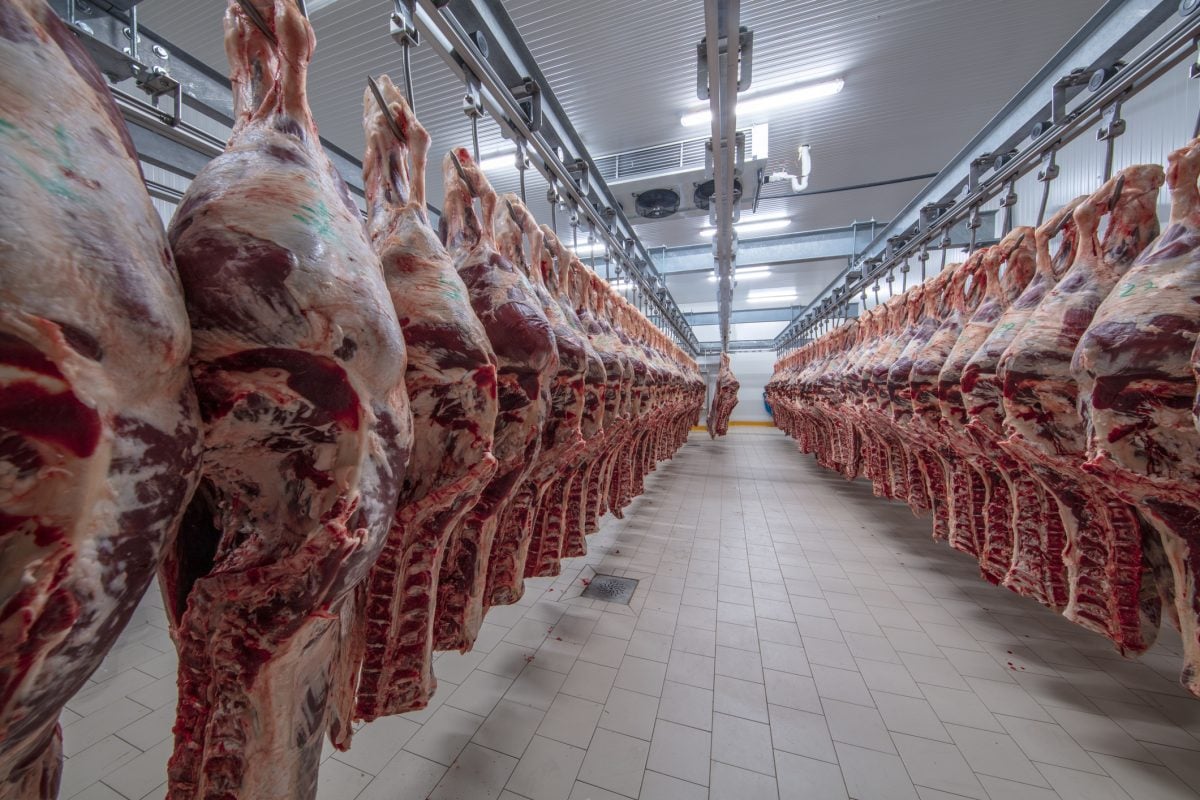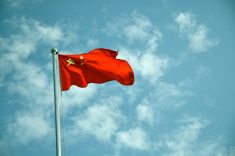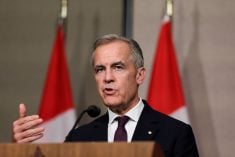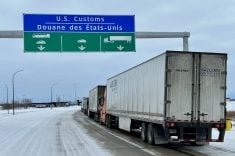Washington/Canberra | Reuters — The United States will sell “so much” beef to Australia, U.S. President Donald Trump said on Thursday after Canberra relaxed import restrictions, adding that other countries that refused U.S. beef products were on notice.
Australia on Thursday said it would loosen biosecurity rules for U.S. beef, something analysts predicted would not significantly increase U.S. shipments because Australia is a major beef producer and exporter whose prices are much lower.
“We are going to sell so much to Australia because this is undeniable and irrefutable Proof that U.S. Beef is the Safest and Best in the entire World,” Trump said in a post on Truth Social.
Read Also

B.C. ostriches culled, CFIA confirms
Ostriches on an embattled Edgewood, B.C. farm have been culled after a prolonged legal battle, the Canadian Food Inspection Agency has confirmed.
“The other Countries that refuse our magnificent Beef are ON NOTICE,” the post continued.
Australia imports minimal U.S. beef
Trump has attempted to renegotiate trade deals with numerous countries he says have taken advantage of the United States – a characterization many economists dispute.
“For decades, Australia imposed unjustified barriers on U.S. beef,” U.S. Trade Representative Jamieson Greer said in a statement, calling Australia’s decision a “major milestone in lowering trade barriers and securing market access for U.S. farmers and ranchers.”
Australia is not a significant importer of beef but the United States is and a production slump is forcing it to step up purchases.
Last year, Australia shipped almost 400,000 metric tons of beef worth $2.9 billion to the United States, with just 269 tons of U.S. product moving the other way.
Relaxed restrictions unrelated to trade talks says Australia
Australian officials say the relaxation of restrictions was not part of any trade negotiations but the result of a years-long assessment of U.S. biosecurity practices.
Canberra has restricted U.S. beef imports since 2003 due to concerns about bovine spongiform encephalopathy (BSE), or mad cow disease. Since 2019, it has allowed in meat from animals born, raised and slaughtered in the U.S. but few suppliers were able to prove that their cattle had not been in Canada and Mexico.
On Wednesday, Australia’s agriculture ministry said U.S. cattle traceability and control systems had improved enough that Australia could accept beef from cattle born in Canada or Mexico and slaughtered in the United States.
The decision has caused some concern in Australia, where biosecurity is seen as essential to prevent diseases and pests from ravaging the farm sector.
“We need to know if (the government) is sacrificing our high biosecurity standards just so Prime Minister Anthony Albanese can obtain a meeting with U.S. President Donald Trump,” shadow agriculture minister David Littleproud said in a statement.
Australia, which imports more from the U.S. than it exports, faces a 10 per cent across-the-board U.S. tariff, as well 50 per cent tariffs on steel and aluminium. Trump has also threatened to impose a 200 per cent tariff on pharmaceuticals.
Asked whether the change would help achieve a trade deal, Australian Trade Minister Don Farrell said: “I’m not too sure.”
“We haven’t done this in order to entice the Americans into a trade agreement,” he said. “We think that they should do that anyway.”
— Reporting by Kanishka Singh, Ismail Shakil and Peter Hobson













